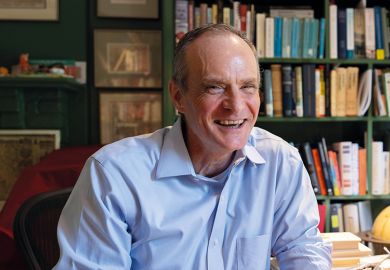How could one measure equal opportunity? Take two groups: X and Y, where X and Y denote natural characteristics (say male and female). Assume each group is equally entitled to some "advantage" - say "health" or "wealth" or "educational attainment". Compare the "advantage" gained by members of each group at some point in their life cycle (perhaps at age 45 for health, 35 for wealth, and 25 for educational attainment). Members in each group will of course reach different levels of "advantage" in each category, but the average and shape of the distribution can be mapped: take, say, the median in each centile of the group distribution for comparison across the two. Assume the preferences of the group display similar characteristics: for example everyone wants to be healthy but similar numbers in each group freely choose to smoke, drink immoderately, eat healthily and so on. The differences in the health, wealth and educational attainment of the two groups should then reveal the inequality of their opportunities.
To create equal opportunity (EO) we should allocate resources to level the playing field. How much should be re-allocated? Well, if we have tested unequal opportunity by "advantage" at some point in the life cycle, then we shall give greater resources until the "advantage" of each group is equal at those points. Group members might realise that they will get more resources if they can pretend to be less healthy, wealthy and educated when their "advantage" is measured. But this group incentive to cheat may be counteracted by group members also being in competition with each other.
It is this kind of analysis that John Roemer offers. In other words, if we can distinguish the individual's circumstances from the individual herself, and equalise the circumstantial effects, then differences in attainment will reflect individual differences. The big question is where the circumstances end and the individual begins. But Roemer produces an algorithm which is supposed to judge EO, wherever one places the boundary between circumstances and the individual. This mathematical formula suggests a distribution policy which equalises advantage across types for given amounts of effort. Thus we define one type, say "white males", in relation to another, say "black females", and choose a policy which equalises opportunity for advantage for a given amount of effort within each group.
We may then compare this algorithm with other rules of social justice such as the Rawlsian or utilitarianism. In the case where individuals are held fully accountable for their levels of effort, the EO and the utilitarian are identical. With large groups, then EO approximates the Rawlsian. But where the mathematical formula simply equalises advantage across types for given amounts of effort, the problems of the true realm of individual responsibility take off, and this is where Roemer thinks the debate should lie.
In this sense, Roemer's interpretation of the boundary fetishises effort. Those who work harder should get more, keeping all else equal. Roemer maintains IQ is an element of one's "circumstances" and should be taken into account in EO. Taken literally, this suggests that criteria for exam marking, for example, should be based upon effort rather than actual achievement. "Tries hard" on school reports would thus lose its damning status. True, Roemer suggests we may wish to place limits on EO policy "for efficiency reasons". But why does he equate all individual merit with effort in the first place? How much effort should one rationally put into running a race? If one is running against the clock and the prize depends entirely on the time taken, then it is rational to try to run as quickly as possible. But if one is running against other competitors and the prizes depend entirely on where one finishes in the race, then less effort may be rational. If I am running second, and see I cannot beat the person in front, but also see the third lagging far behind, then why should I run as fast as I can? I may as well conserve my energy while still winning the silver.
Once again, Roemer's combination of the techniques of economics and philosophy throws down a challenge to those in both disciplines. He believes he has sorted out equal opportunity, to leave us only with questions of personal responsibility and efficiency. A dash of political science may rein in what we can make of his account, but Equality of Opportunity is a very important work of metaphysical welfare economics.
Keith Dowding is reader in public choice and public administration, London School of Economics.
Equality of Opportunity
Author - John E. Roemer
ISBN - 0 674 25991 2
Publisher - Harvard University Press
Price - £18.50
Pages - 120
Register to continue
Why register?
- Registration is free and only takes a moment
- Once registered, you can read 3 articles a month
- Sign up for our newsletter
Subscribe
Or subscribe for unlimited access to:
- Unlimited access to news, views, insights & reviews
- Digital editions
- Digital access to THE’s university and college rankings analysis
Already registered or a current subscriber?



